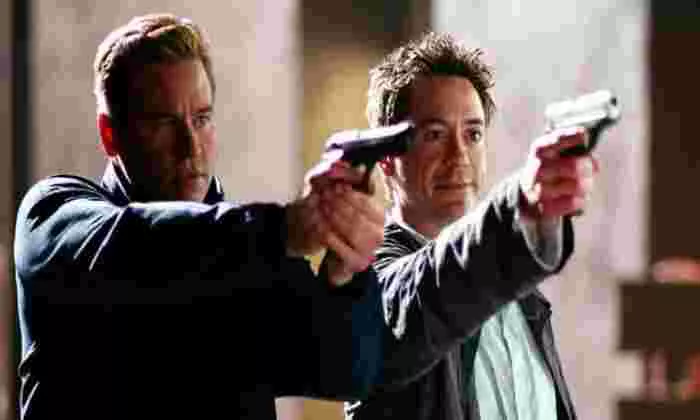Classic crime movies have long been a staple of cinema, captivating audiences with their gripping narratives, memorable characters, and timeless themes of morality, justice, and redemption. In this exploration, we’ll delve into five classic crime movies, offering brief reviews that highlight their significance, impact, and enduring appeal.
1. The Godfather (1972):
Directed by Francis Ford Coppola and based on the novel by Mario Puzo, “The Godfather” is a landmark crime epic that chronicles the rise of the Corleone crime family and their patriarch, Don Vito Corleone (Marlon Brando). With its richly drawn characters, intricate plot, and themes of power, loyalty, and betrayal, “The Godfather” is widely regarded as one of the greatest films ever made. Brando’s iconic performance as the enigmatic Don Vito, along with Al Pacino’s portrayal of his ambitious son Michael, solidified the film’s place in cinematic history. From its unforgettable dialogue to its stunning cinematography and haunting score, “The Godfather” remains a timeless masterpiece that continues to influence filmmakers and inspire audiences worldwide.
2. Goodfellas (1990):
Directed by Martin Scorsese, “Goodfellas” is a riveting crime drama that offers an insider’s perspective on the world of organized crime in New York City. Based on the true story of mobster Henry Hill (Ray Liotta), the film explores his rise through the ranks of the Mafia alongside his friends Jimmy Conway (Robert De Niro) and Tommy DeVito (Joe Pesci). With its kinetic direction, stylish visuals, and electrifying performances, “Goodfellas” immerses viewers in the seductive allure and brutal reality of the criminal underworld. Pesci’s Oscar-winning performance as the volatile Tommy is particularly memorable, capturing the character’s unpredictable nature and explosive temper. As a masterful blend of crime, drama, and dark humor, “Goodfellas” ranks among Scorsese’s finest works and remains a quintessential classic of the genre.
3. The Shawshank Redemption (1994):
Directed by Frank Darabont and based on the novella by Stephen King, “The Shawshank Redemption” is a poignant tale of friendship, hope, and resilience set within the walls of Shawshank State Penitentiary. The film follows Andy Dufresne (Tim Robbins), a banker wrongfully convicted of murder, and his friendship with fellow inmate Ellis “Red” Redding (Morgan Freeman). Through Andy’s determination to maintain his dignity and find redemption, “The Shawshank Redemption” explores themes of perseverance, forgiveness, and the enduring power of the human spirit. Freeman’s narration and Robbins’ understated performance imbue the film with a sense of quiet dignity and emotional depth, while its powerful message of hope resonates with audiences long after the credits roll. Despite initially underperforming at the box office, “The Shawshank Redemption” has since become a beloved classic, consistently ranked among the greatest films of all time.
4. Chinatown (1974):
Directed by Roman Polanski and starring Jack Nicholson and Faye Dunaway, “Chinatown” is a neo-noir mystery thriller set in 1930s Los Angeles. Nicholson stars as private investigator J.J. “Jake” Gittes, who becomes embroiled in a complex web of corruption, deceit, and scandal while investigating a seemingly routine case of adultery. As Gittes delves deeper into the mystery, he uncovers dark secrets that threaten to unravel the fabric of society itself. With its atmospheric cinematography, labyrinthine plot, and nuanced performances, “Chinatown” is a masterclass in storytelling that subverts audience expectations and challenges conventional genre conventions. Dunaway delivers a standout performance as the enigmatic Evelyn Mulwray, while Nicholson’s portrayal of Gittes captures the character’s world-weary cynicism and moral ambiguity. “Chinatown” remains a cornerstone of American cinema, revered for its complex narrative, evocative imagery, and timeless relevance.
5. Heat (1995):
Directed by Michael Mann and starring Al Pacino and Robert De Niro, “Heat” is an epic crime thriller that explores the intersecting lives of a master thief and a seasoned detective on opposite sides of the law. Pacino portrays Detective Vincent Hanna, a relentless law enforcement officer determined to bring down a crew of skilled bank robbers led by De Niro’s Neil McCauley. As the two men engage in a deadly game of cat and mouse, “Heat” examines themes of obsession, loyalty, and the blurred lines between good and evil. Mann’s meticulous direction, combined with the film’s intense action sequences and complex character dynamics, creates a gripping and immersive experience for viewers. Pacino and De Niro deliver powerhouse performances as adversaries whose fates become inexorably intertwined, culminating in a climactic showdown that ranks among the most iconic moments in cinematic history. With its epic scope, visceral thrills, and thought-provoking themes, “Heat” remains a benchmark of the crime genre and a testament to the enduring power of storytelling.
Conclusion
In conclusion, these five classic crime movies represent the pinnacle of cinematic achievement, captivating audiences with their compelling narratives, unforgettable characters, and timeless themes. From the operatic tragedy of “The Godfather” to the gritty realism of “Goodfellas” and the existential angst of “Chinatown,” each film offers a unique perspective on the human condition and the complexities of morality, justice, and redemption. As enduring classics of the genre, these films continue to inspire and resonate with audiences, reminding us of the power of storytelling to illuminate the darkest corners of the human soul.
Related Topics:
Top 10 American Comedies – Check Them Out

